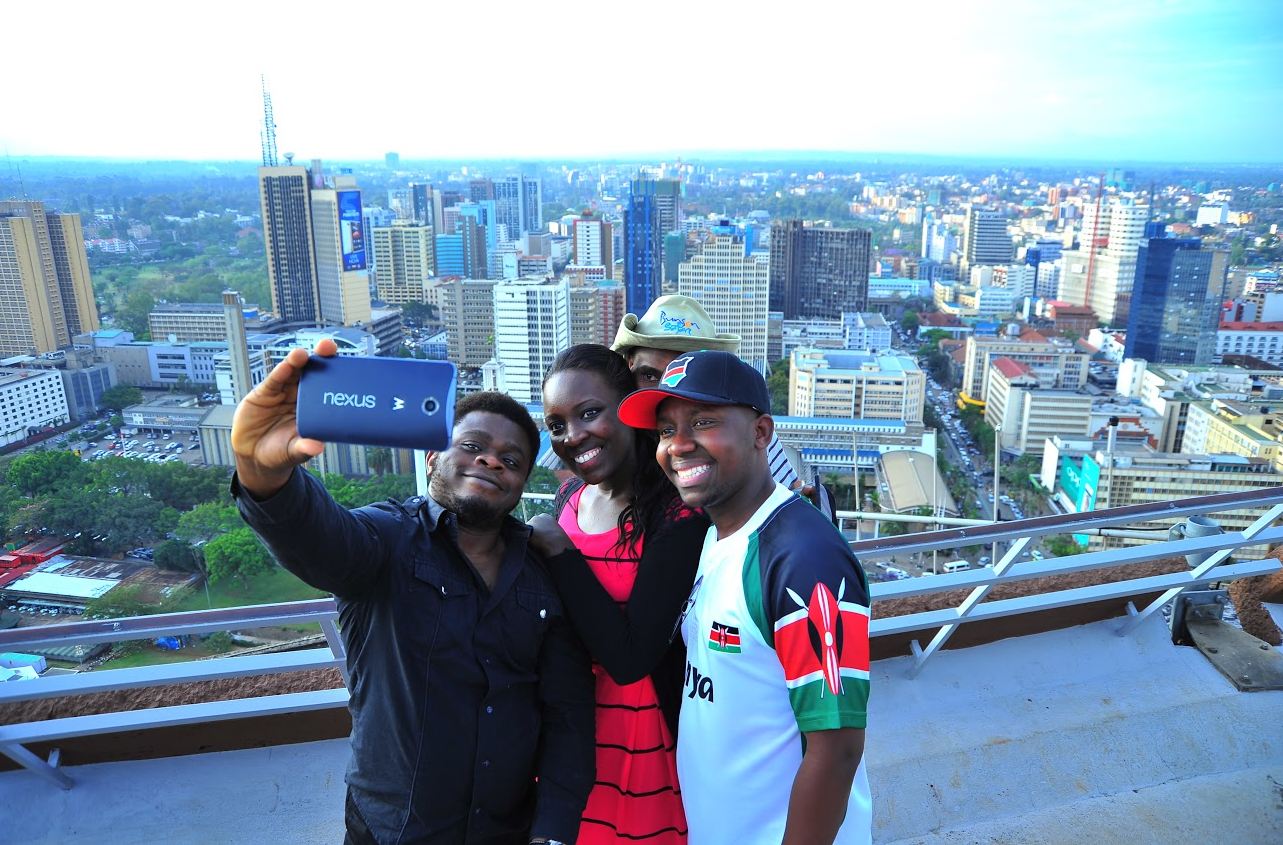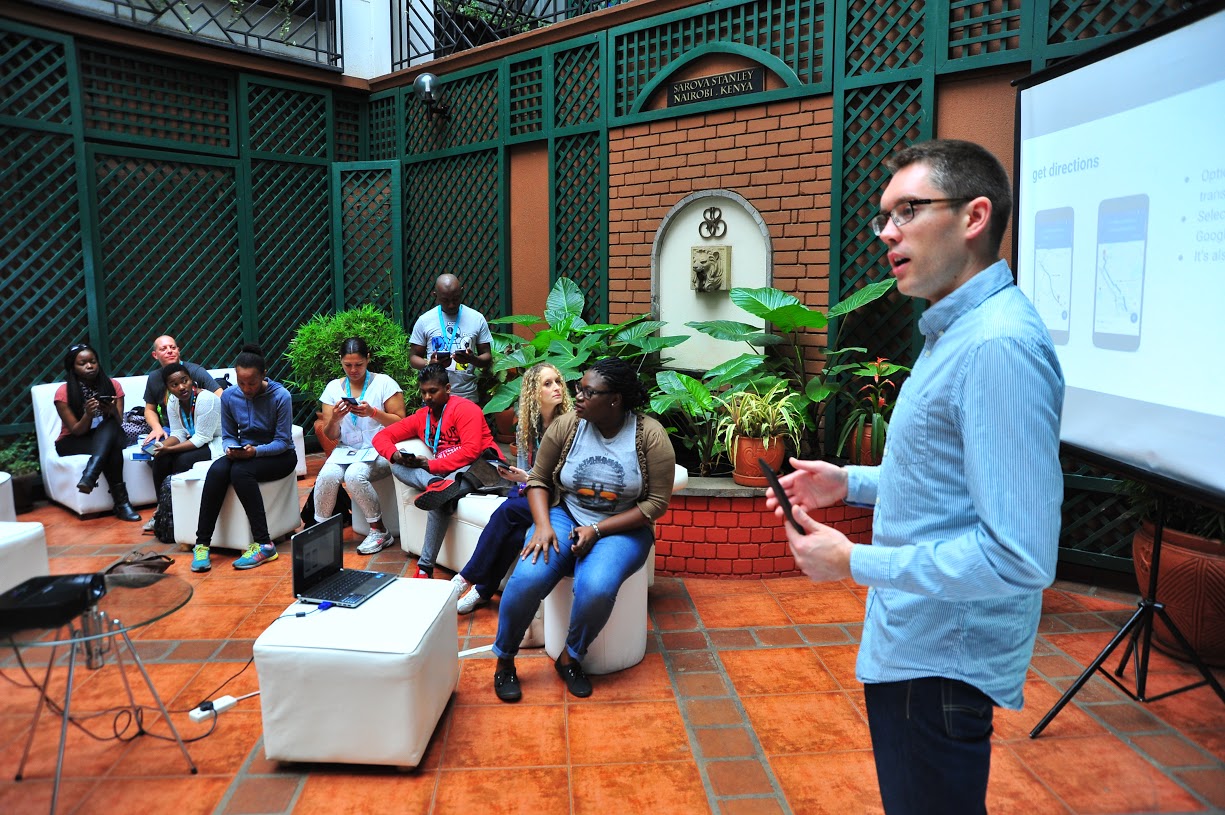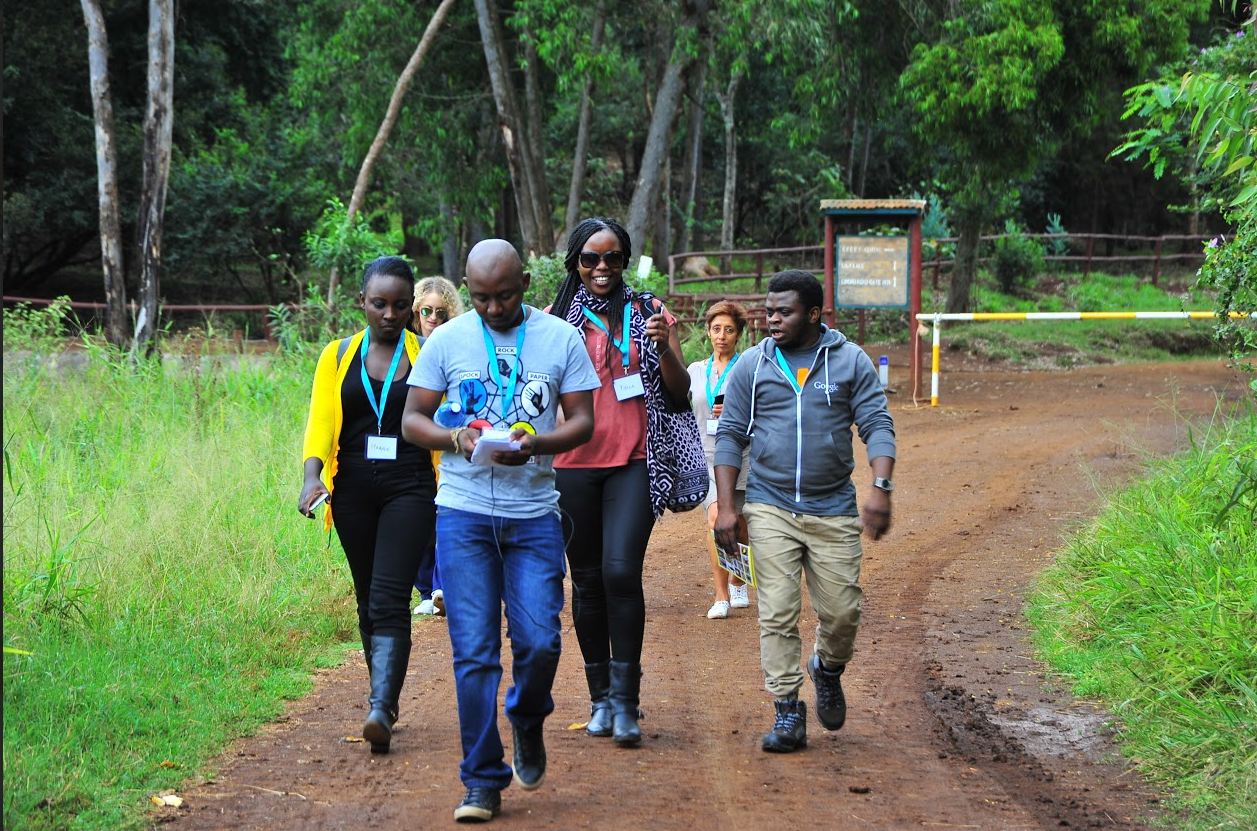Sthembiso Sithole
While I was packing for my trip, I had many questions about my journey and stay. These were answered when Google took us to their offices in Sandton, Johannesburg, to show us how a Nexus 6 worked with their apps to enhance our trip.
Travellers will tell you that knowing the weather conditions of the place you are visiting is important. With the press of a microphone icon, Google Voice Search, which enables you to ask a question and get a spoken reply, told me about the weather in Nairobi. It said that it usually rained in Nairobi at this time of year, so a raincoat was advisable.
The Nexus 6 is big – it covers my entire hand – and features apps such as Google Maps, Google Translate and Voice Search, which shows the phone is of high quality.
Before the trip, I had a full schedule of activities organised for our group of 35 journalists.
Google Calendar managed my timetable, from the lavish Sarova Stanley Hotel to the Great Rift Valley view point, on my Gmail account. The app makes reminders and alarms redundant.
When I woke up on my first morning in Kenya, Google Calendar notified me of my first stop. Throughout my trip, notifications came up promptly beforehand. It operates like email announcements, giving you prompts before you need to leave and when you depart. I was never worried about being late.
Our first stop was the Great Rift Valley view point. The valley is part of an intra-continental ridge system that runs through Kenya from north to south. It is a spectacular sight. When you see the valley with its vast variety of vegetation, you forget that it was only a two-hour drive from Nairobi. The valley provides the perfect scenery and landscapes for photographs. I guess that’s why we had to stop.

The Nexus’s camera quality is amazing. It has 16 megapixel photos, which captured the physical features of the valley beautifully. And, since I take a lot of selfies, I was impressed with how clear pictures were. With Google Photos, your pictures and videos are automatically backed up and it is easy for you to manage them from a Gmail account.
After spending time on a sunny morning at the Nairobi National Park looking at the lions, zebras and giraffes, I finally got a chance to go to the Carnivore Restaurant, where they served game. At least five waiters surrounded our table offering us meat ranging from crocodile to chicken.
Before indulging in the well-prepared meal, it was time to put Google Translate to test. The Google team prepared a test for us — the menu in Swahili for us to translate. It included mguu wa n’gombe, which means cattle foot.
Paul Solomon, the head of communications for Google in Africa, the Middle East, Israel and Turkey, said the core function of Google Apps, in particular Translate, was to make travelling easy – one doesn’t have to worry about the language barrier.

He said Google Translate was not 100% perfect but they were working on adding more languages to it. The idea was to get to develop a system where, “if I’m speaking into a smartphone in my mother tongue, which you don’t understand, it would automatically translate into your mother tongue so that you can understand it, then you can respond to me”.
As we travelled I was fascinated by how most of us couldn’t stay away from our phones. It’s true, you can’t separate people from their gadgets, especially if there’s free wi-fi.

On our way from the Jomo Kenyatta International Airport, some reporters who weren’t roaming their cellphones felt isolated from the social media sphere because they couldn’t share their photos.
But, within a short time of arriving at Sarova Stanley Hotel and the distribution of wi-fi passwords was done, everyone was back to their phones. Throughout the trip, visiting places such as Ololo Lodge, we would chat to each other for about two minutes, and then we would be hooked on our gadgets again.
And selfies were the order of our trip, which proved that technology and social media has taken over our lives and that we spend less time interacting with each other.